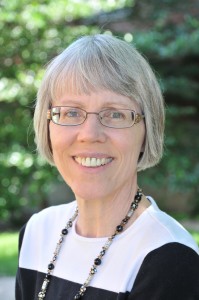By Barb Arland-Fye
Editor
Whether or not Dr. Martin Salia treated victims of Ebola, he died doing Jesus’ will by caring for the sick in Sierra Leone, a West African country hit hard by the Ebola crisis. Dr. Salia died in an Omaha hospital days after contracting Ebola in Sierra Leone. In my opinion, he’s a modern-day saint. So is New Jersey nurse Andrew Wegoye, a native of Uganda who volunteered to go to West Africa to help people sickened by Ebola after he’d seen earlier outbreaks in his homeland. While other volunteers, would-be volunteers and state governments argue over quarantine mandate issues, Wegoye chose to travel the path of selflessness. Being quarantined upon returning home “would be the least of my worries,” Wegoye told the Associated Press by telephone from Monrovia, Liberia. “Because being in quarantine for 21 days is nothing compared to people dying here without supportive care to help them see another day” (Quad-City Times, Nov. 9, 2014).

Would I be willing to make such a sacrifice? I don’t think God expects me – with no other health care experience than being a mom — to travel to West Africa to assist desperately ill people. But Wegoye’s eloquent, heartfelt statement moved me to consider what kind of sacrifices I might be willing to make for the hungry, the thirsty, the poor, the prisoner, the stranger.
Maybe it means taking time to return to the nursing home to talk with a woman I met during a visit with members of my parish several months ago.
Maybe it means responding more often to persistent emails to draft letters to my representatives in Congress and in the state legislature concerning immigration reform, stewardship of the earth and efforts to alleviate poverty. It’s so much easier to move those emails to an electronic folder where they are out of sight and out of mind.
Maybe it means complaining less about life’s inconveniences — car troubles, an unexpectedly cold shower at the Y, polar vortexes — and giving thanks for things I don’t always appreciate but should: kale, my stationary bicycle and spare pair of eyeglasses.
Maybe it means remembering to not just purchase but to personalize and actually send cards to people dealing with life’s joys and sorrows.
Maybe it means being more patient with myself and others when I’m feeling the pressure of deadlines or when things aren’t going the way I anticipated.
These “sacrifices” pale in comparison to the sacrifices made by Dr. Martin Salia and Andrew Wegoye and countless other selfless people. It’s a start, though. St. Therese of Lisieux wrote in her autobiography “Story of a Soul” that what matters most in life is not great deeds but great love.
“She believed and teaches us that God is everywhere — in every situation and person — and in the ordinary, simple details of life” (http://www.littleflower.org/abouttherese/learn/FAQs.asp).
I thank God for the inspiring stories of Dr. Salia, nurse Wegoye and all healthcare workers who have and are risking their lives for the sake of people suffering from deadly illness. These healthcare workers remind me to look for God everywhere in the ordinary, simple details of life and to perform small deeds with great love.








